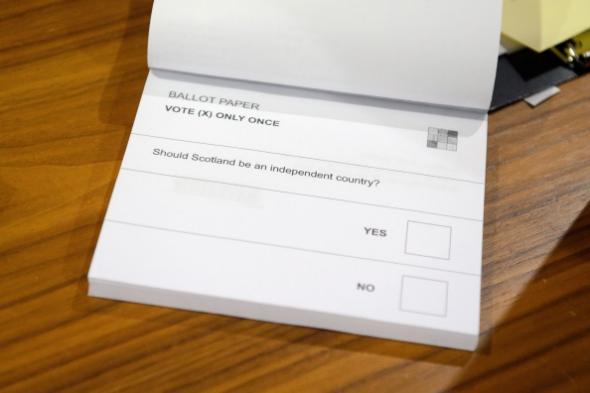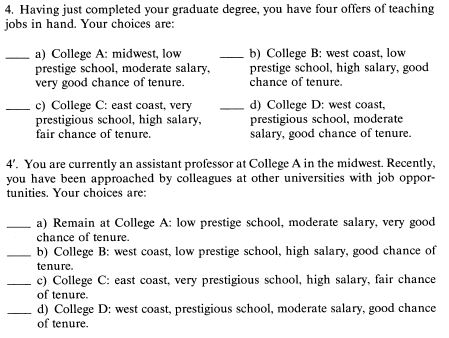Above is a photo of the ballot for Scottish independence.
The ballot wording seems incredibly straightforward (which is the point of this short Slate article). However, way it is worded might be biasing the vote towards independence.
People seem to have a large number of biases and heuristics they use when making decisions. One of these is called the “status-quo bias.” Samuelson and Zeckhouser, in their seminal work, demonstrated this bias by asking people to make decisions in hypothetical scenarios. In some treatments, one of the options was said to be the status quo and in other treatments none of the options were. Here is an example from the questionnaire in the appendix to the paper linked above:
Individuals given the first scenario are more likely to choose A than individuals given the second scenario. This demonstrates a bias because individuals are choosing between the same four choices, but in the second option the only difference is that individuals are already at College A. (It could be argued that the decision-makers are taking moving cost into account in their decision, but the status quo bias has been demonstrated in many scenarios where this type of cost is not a factor.)
The status quo bias is pretty robust – it has been demonstrated in questionnaires, field experiments and observational data. A famous example is the observation that countries where organ donation in the default option on the donation form have drastically higher organ donor rates than countries where not being an organ donor is the default. This holds even for cases where the same country changes from an opt-out to an opt-in form.
Taking the status-quo bias in mind, suppose that the Scottish ballot were worded:
“Should Scotland become an independent country?”
This slight change in wording would, I predict, highlight the status quo and result in a somewhat lower vote for independence. (Granted, this is a pretty safe prediction to make since no one can test it.) But would this difference be enough to sway the election? I hear it will be pretty close…


